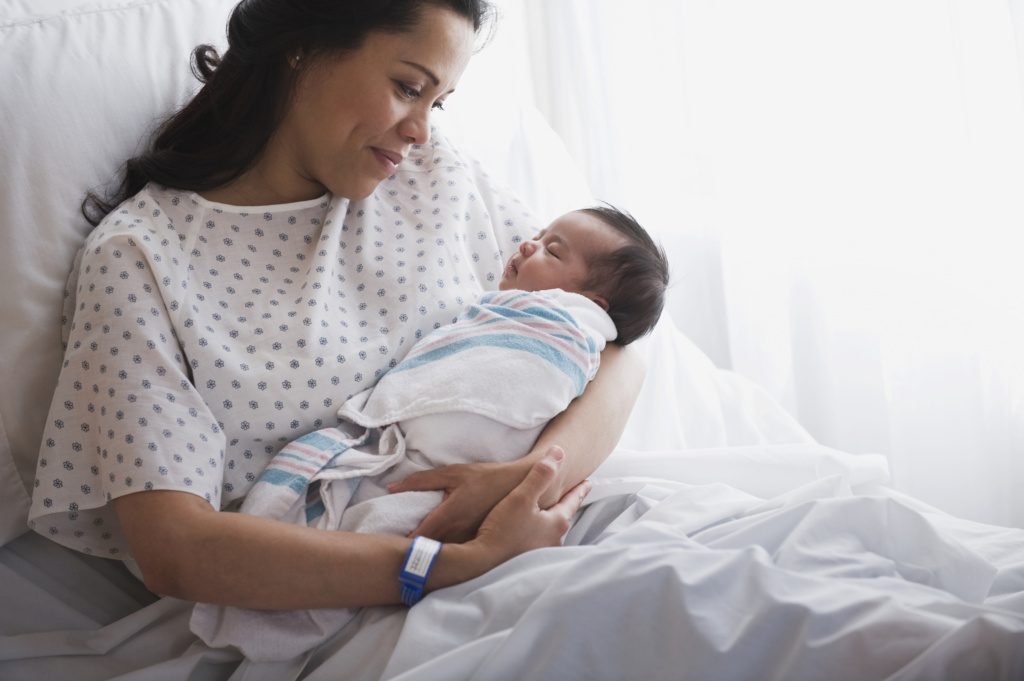 Newborn and infant circumcisions are usually done in the hospital shortly after delivery. In the United States circumcisions are performed most commonly by Pediatricians, OB/GYN physicians, Family Practitioners or their advanced care providers (Nurse Practitioners, Physician’s Assistants, and Physicians in training). Most baby circumcisions are performed while restraining your child on a procedure board using sterile equipment. Local anesthesia (topical cream or injection) is typically provided to lower the discomfort to your child during the procedure. The procedure should take 5-15 minutes to perform. Your baby will be returned to you shortly thereafter. Instructions for care will be provided which usually are standard, but may vary by care provider.
Newborn and infant circumcisions are usually done in the hospital shortly after delivery. In the United States circumcisions are performed most commonly by Pediatricians, OB/GYN physicians, Family Practitioners or their advanced care providers (Nurse Practitioners, Physician’s Assistants, and Physicians in training). Most baby circumcisions are performed while restraining your child on a procedure board using sterile equipment. Local anesthesia (topical cream or injection) is typically provided to lower the discomfort to your child during the procedure. The procedure should take 5-15 minutes to perform. Your baby will be returned to you shortly thereafter. Instructions for care will be provided which usually are standard, but may vary by care provider.
Normal hygiene using baby soap and water is usually recommended by all. Your child will urinate and stool onto the circumcision often and this should not necessarily increase the risk of infection and should not increase your anxiety for care. Cleaning the penis after circumcision is typically only for general cleaning purposes. Further instructions may include applying petroleum jelly (Vasoline) or gauze or antibiotic ointment to the site. Some care providers stress sponge baths and others approve normal submersion in baths.
Many institutions and care providers require that your child urinates after the procedure prior to discharge. Gentle retraction of the shaft skin after the circumcision can be encouraged to avoid adhesions (foreskin sticking to the head of the penis – see OUTCOMES), but this recommendation varies widely among providers since adhesions will resolve on their own over time. Typically you will be encouraged to follow up with your child’s physician or care provider if further concerns arise regarding the circumcision. In other words, rarely does the individual who performs the circumcision follow up and check on the site later.
Regardless of the technique used, your baby may have some swelling, redness and slight bleeding. These are all normal healing responses in most cases. Because the penis has considerable blood supply, the inflammatory response can be remarkable, but the likelihood of infection is very low. If a plastic ring (Plastibell) is used, temporary swelling around the ring is expected until it comes off, usually within 3-7 days. Local tenderness is also common, and if it is significant you should consider giving your child occasional infant acetaminophen if not contraindicated by your child’s health. Complete healing typically occurs in a few days or up to 2 weeks.
The newborn or infant penis is typically very resilient to manipulation and procedures. As a parent, you should not be afraid to clean or manipulate it to provide care or inspection. Again, because of the increased blood supply to the penis, it swells easily but improves quickly with a low chance for infection or injury due to manipulation.
We are not providing medical advice; if you need advice, please consult with your child’s physician or care provider regarding personal concerns, risks, outcomes, or other advice.
Some Comments From Our Visitors